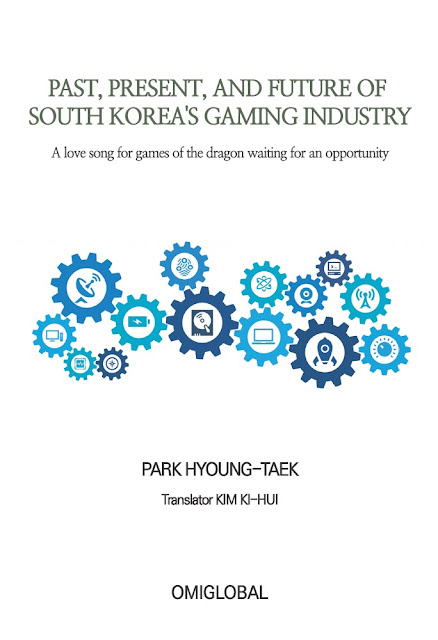泥中蟠龍's Game愛歌 [A love song for games of the dragon waiting for an opportunity] Video game and the separation of banking and commerce
泥中蟠龍's Game愛歌
[A love song for games of the dragon waiting for an opportunity]
Video game and the separation of banking and commerce
September. 12. 2018.
Recently, I read an article on the subject of ease regulations on the separation of banking and commerce and video game by Kim Sang-Hyun, an executive editor in our paper. In the article, he was full of hope for positive effects: game developers such as Netmarble and Nexon run an online bank—internet-only bank, which can boost the local gaming industry thanks to ample capital and financing. I also completely agree with him about the aggressive investment in domestic games. But I do oppose to ease banking-commerce separation per se so that I'd like to deal with it this week's column.
What does the term mean? It means that industrial capital should be separated from banking capital; banks are not allowed to affiliate with other businesses. Separation of industrial and financial capital is analogous to the principle. It means that industrial capital should be separated from financial capital; businesses are restricted from owning not a bank alone, but an insurance company or securities, etc. The word "regulation" generally implies quite a negative connotation such as "control" or "oppression". And most regulations are accompanied by criticism and opposition due to their ineffectiveness and inconveniences. It is hard to deny regulations are ineffective and inconvenient. So, why are the regulations made?
Regulations are commonly used as a way to diminish the risk. The key lies in how to maintain their low-risk efficiency. If we can go across the road wherever we want, it would be very convenient and efficient. But jaywalking is regulated by law. Because it's too dangerous.
While industry fields related to FinTech are globally in the limelight in recent years, we have often heard that restrictions on the separation of banking and commerce retards the development of financial technology-connected sectors only in South Korea. I partly admit it. However, I don't think that the growth of fintech-linked industries is positively necessary as much as we take risks to ease regulations on the separation of banking and commerce. I'd rather say that we need the separation of industrial and financial capital. About a 0.01 percent chance of accidents can be 100 percent if I, unfortunately, have an accident. There was a smaller savings bank-related financial crime in 2011. The amount of damage by the authorities was estimated at almost 7 trillion won. We hardly imagine how much damage a large bank will get by a financial irregularity. It's easy to lift restrictions but reregulation is harder than creating new regulations.
Many CEOs of smaller video game companies say that it's difficult to let their employees follow workplace rules. They add that there are lots of backlash against new administrative rules. And the workers get used to the rules and the controversy is abated somewhat over time. However, chief executives would be the face of stronger resistance by the staff when they try to bring an abolished policy back. This seems to be the case for the separation of banking and commerce. It wouldn't be easier to strengthen the regulation again once the government moved toward deregulation for one reason or another. We deposit money with a bank because we believe that it is safe. Someone, who prefer the high-risk high return, may choose to invest in stocks, futures, or option, etc. Another would go to casinos for higher risks higher returns. A representative, who completely ruined a game project where many people got involved in due to a small number of troubled employees, would heartily agree with what I say. Screw up and one's way home is long and dark.
※ This is from Kyunghyang Games column by 泥中蟠龍 since September 2013.
(http://www.khgames.co.kr)
Translation by Kim Ki-hui
![Video game and the separation of banking and commerce 泥中蟠龍's Game愛歌 [A love song for games of the dragon waiting for an opportunity]](https://blogger.googleusercontent.com/img/b/R29vZ2xl/AVvXsEinE6dof5A3A_yjDMwMPw_aNPO7JJrH67VM6IIyV4yFZigU1DKFKcn9lbg0lNTYe1jY9KThVRkBIOjZPiMVr8NYVYAlKjZWa8_alk4RvZnRHLAaZ2E2af5pddqABtx8oy1shuEPCx9_PFQ/w438-h640/%25EB%258C%2580%25ED%2595%259C%25EB%25AF%25BC%25EA%25B5%25AD%25EA%25B2%258C%25EC%259E%2584%25EC%2582%25B0%25EC%2597%2585+%25EC%2596%25B4%25EC%25A0%259C%25EC%2598%25A4%25EB%258A%2598%25EA%25B7%25B8%25EB%25A6%25AC%25EA%25B3%25A0%25EB%2582%25B4%25EC%259D%25BC_%25EC%25B1%2585%25ED%2591%259C%25EC%25A7%2580_%25EC%2598%2581%25EB%25AC%25B8+%25ED%2591%259C%25EC%25A7%2580.jpg)

Comments
Post a Comment